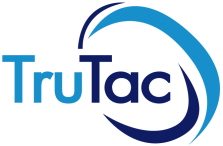DVSA take new steps to focus on serially and seriously non-compliant operators
The DVSA has reaffirmed its intention to shift away from a culture of enforcement towards one of compliance as it bids to reduce the burden on professional truck fleet operators and free up its own resources to tackle the worst offenders.
Caroline Hicks, DVSA head of enforcement, told a Fleet Industry Manifesto meeting last year (Fleet News September 4) that she wanted to “completely transform” the way DVSA carries out enforcement for trucks and vans by reducing the cost of compliance and increasing the penalties related to non-compliance.
“We want the cost of compliance to be relatively low, relatively steady and relatively known,” Hicks said. “As soon as you choose to be non-compliant the costs will increase and they will keep increasing so that no business can afford to sit in that non-compliant area.”
The DVSA has now announced the first step towards this new procedure with the trial of ‘earned recognition’ for HGV fleets.
Under the trial, operators who make their records available to the DVSA to view online could gain recognition as a compliant operator, removing the need for the DVSA to perform roadside checks.
Hicks told delegates at a Microlise transport conference that the earned recognition system would “reduce the burden” on fleets. The DVSA would be able to focus more on compliance, rather than enforcement, and tackling “serious and serially non-compliant” operators.
It would also cut the cost for fleets; one national supermarket chain claimed that each roadside check cost its business more than £4,000.
“The massive cost is because of the just-in-time nature of their deliveries. And we do tens of thousands of these roadside encounters every month,” Hicks said.
By looking at key data supplied by fleets, the DVSA would be able to assess which operators are compliant and which are not. It would then seek to only stop those whose compliancy was in doubt, in particular those that did not voluntarily open up their records for inspection.
Prior to the trial going live, the DVSA had commissioned independent research which identified six types of ‘operator culture’:
- exemplar,
- compliant,
- compliant with support,
- potential rule breakers,
- non-compliant
- and seriously/serially non-compliant.
Those operating beyond compliant with support would be much more likely to be targeted when on the road.
The new system will not be mandatory, but the DVSA said it would “engage with industry representatives throughout the process to allow people opportunity to get on board”.
Source www.commercialfleet.org

